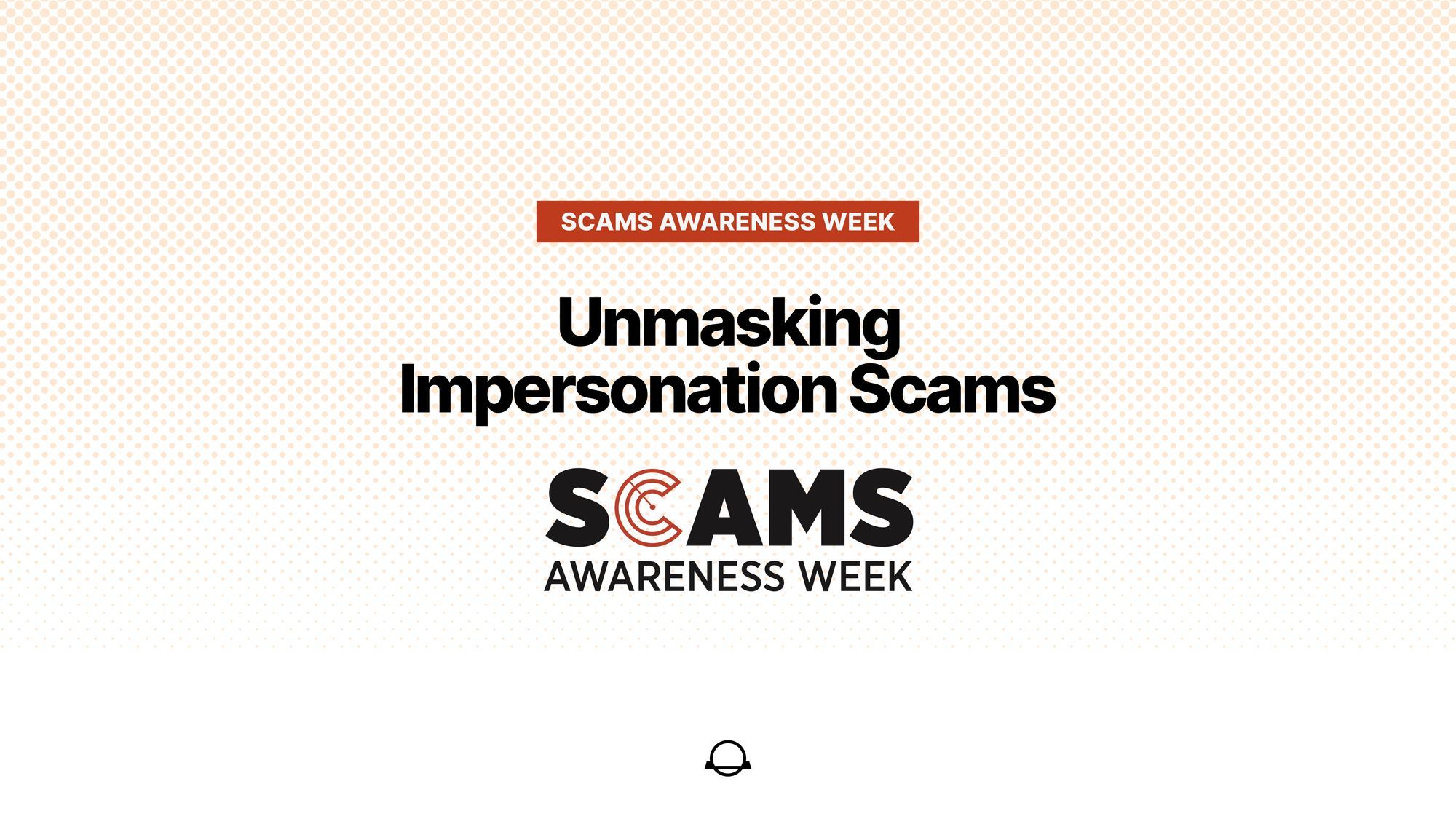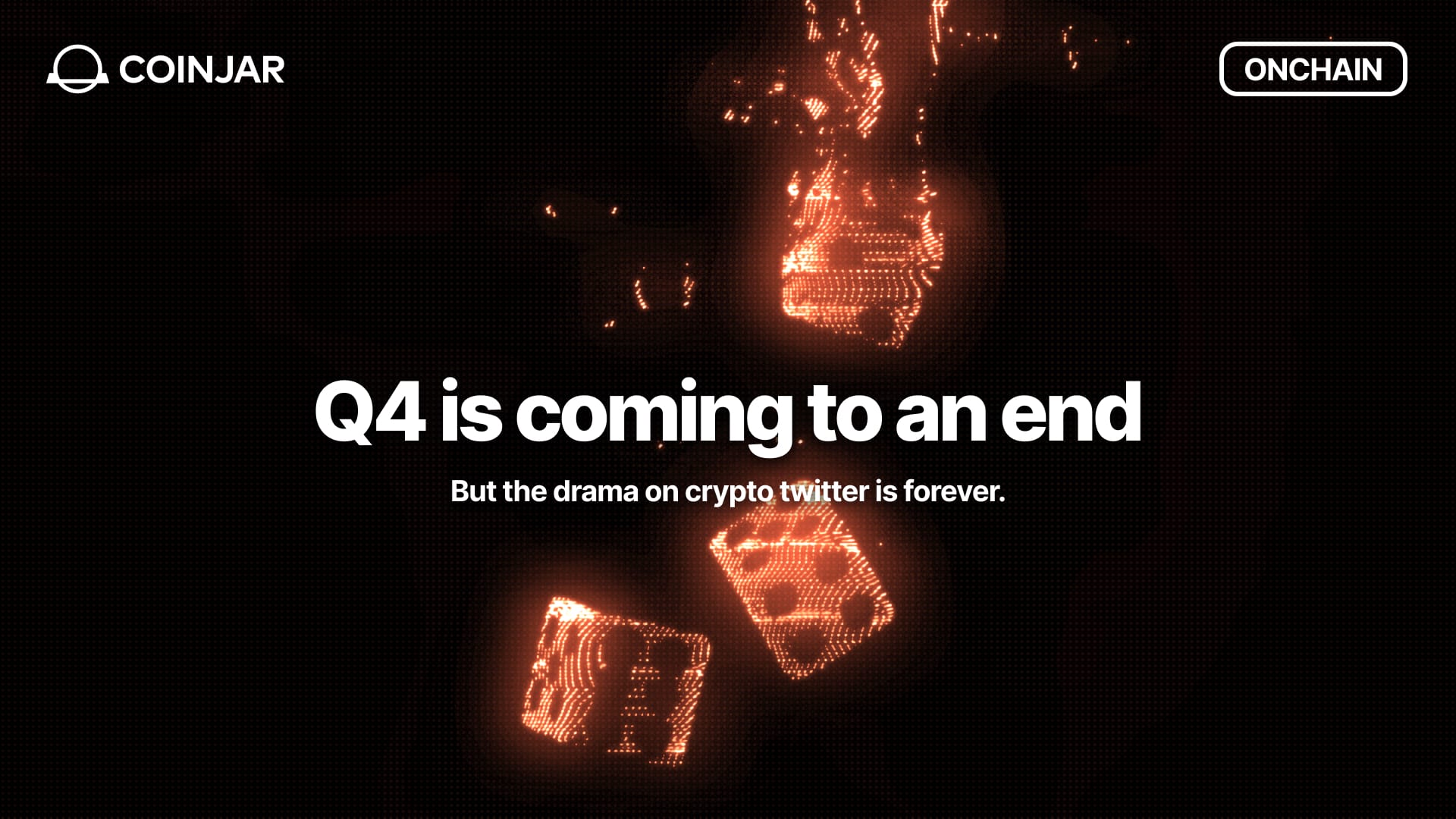Unmasking Impersonation Scams
November 27, 2023
Share this:

As part of Scam Awareness Week, we're joining Scamwatch and the ACCC as an official partner to delve into the shadowy realm of impersonation scams. We focus on uncovering the essential tactics for identifying scams in your daily digital life, verifying authenticity and real-life examples.
Impersonation scams are the wolves in sheep's clothing of the cyber world. They don't just knock on your digital door – they come dressed as the postman. In 2023 so far, impersonation scams accounted for more than 70% of the 234,672 reports to Scamwatch.
Impersonation scams can be extremely sophisticated, be it impersonation of government officials, well-known companies, or even those closest to you. Remember those “Hey mum” text messages? We do!
The Anatomy of Impersonation Scams
Impersonation scams are a masterclass in digital deceit. These scammers utilise advanced technology to create communications that appear frighteningly legitimate. They can clone websites, mimic phone numbers, or even hijack social media profiles. Their aim? To blur the line between genuine and fraudulent, tricking you into volunteering your personal information or hard-earned money.
Understanding and identifying these scams is crucial in safeguarding your digital presence.
Recognizing the Red Flags
Awareness of the common signs is your first line of defence. Consider these scenarios:
- A text message arrives from a 'family member' in an emergency, urging you to transfer funds immediately.
- An email from a 'bank' with the wrong domain name or email address, requesting your account details or letting you know your account has been frozen.
- A text message from the local post service letting you know a delivery failed and your action is needed.
- A call from a 'government official' threatening legal action unless immediate payment is made.
In each case, the demand for urgent action, coupled with a request for personal or financial information, should trigger suspicion.
Navigating the Minefield
The golden rule here is simple:
Stop, think, protect. Do not rush into action.
Be sceptical of every request, especially those instilling a sense of urgency or fear, or pushing for payment or information. Legitimate, genuine organisations and individuals will understand and respect your need for verification.
Verifying Authenticity
In the realm of impersonation, verification is key. Here’s how you can do it:
- If you receive a message from a 'new' number of a known contact, try calling their old number or ask a question only they would know.
- When contacted by an organisation, look them up online – find their official contact information and reach out to confirm if the communication is genuine.
- Be vigilant about slight variations in URLs, email addresses, or caller IDs.
Real-Life Examples for Context
Consider Jane, who received an email from her 'bank' about a suspicious transaction. The email looked legitimate but asked her to immediately confirm her login details. Jane, remembering the rule of verification, contacted her bank through their official website and discovered it was a scam attempt.
Or take the case of Alex, who got a call from someone claiming to be from the tax office, demanding immediate payment for tax dues. The caller ID seemed official, but Alex asked for a reference number and called back on the official tax office number, only to find no such dues existed.
Making a Report
Scams can be stopped, but we need your help to do it. You can help stop the scam, and help warn others, by reporting the scam to the National Anti-Scam Centre via Scamwatch.gov.au.
By reporting scams to Scamwatch you help protect others and disrupt and stop scammers. The reality is, 30% of scams currently go unreported.
The information you share to Scamwatch helps the National Anti-Scam Centre to identify the scams that are causing the most harm to Australians.
In this digital masquerade ball, where scammers are constantly evolving their tactics, your scepticism and diligence are paramount. Always remember, in the face of impersonation, it’s not just about spotting the scam; it’s about outsmarting it. Stay alert, stay informed, and stay safe.
If in doubt...
If you’re unsure about something, contact CoinJar Support. We’re constantly monitoring suspicious wallets and websites and can help you work out whether something is a scam or not.
Stay safe,
CoinJar Team
The above article is not to be read as investment, legal or tax advice and takes no account of particular personal or market circumstances; all readers should seek independent investment, legal and tax advice before investing in cryptocurrencies. This article is provided for general information and educational purposes only. No responsibility or liability is accepted for any errors of fact or omission expressed therein. CoinJar, Inc. makes no representation or warranty of any kind, express or implied, regarding the accuracy, validity, reliability, availability, or completeness of any such information. Past performance is not a reliable indicator of future results.
Share this:
On/Offchain
Your weekly dose of crypto news & opinion.
Join more than 150,000 subscribers to CoinJar's crypto newsletter.
Your information is handled in accordance with CoinJar’s Privacy Policy.
More from CoinJar Blog

Onchain: New Year, Same old industry
January 15, 20262026 has been off to a strong start, with constant drama from the White House. But it’s not on Trump alone to keep our cholesterol levels high. Crypto is contributing its...Read more
Goodbye 2025: CoinJar's Year of Global Growth and Innovation
December 31, 20252025 saw CoinJar push into new regions and launch major product upgrades. Here's a preview of what lies ahead.Read more